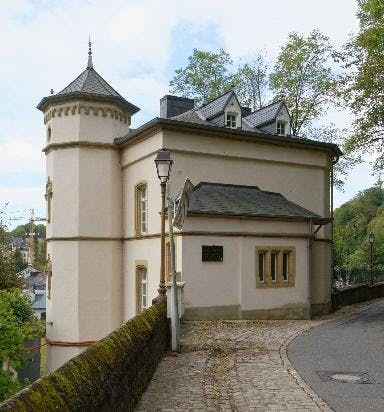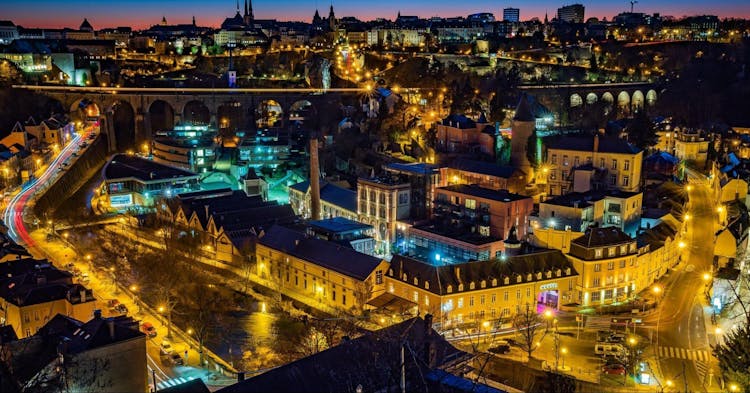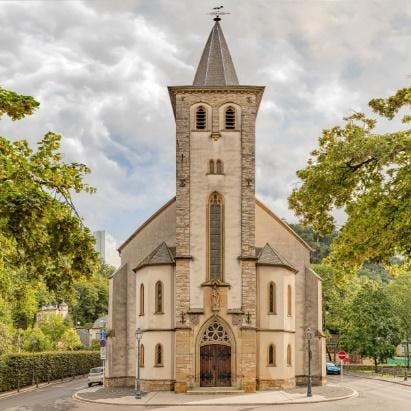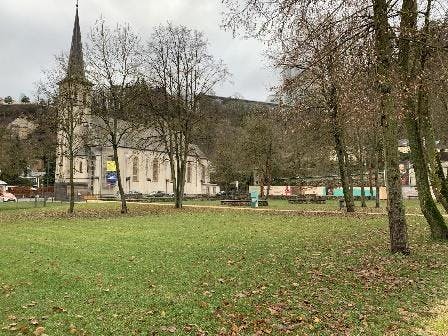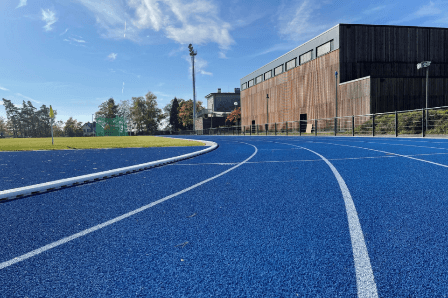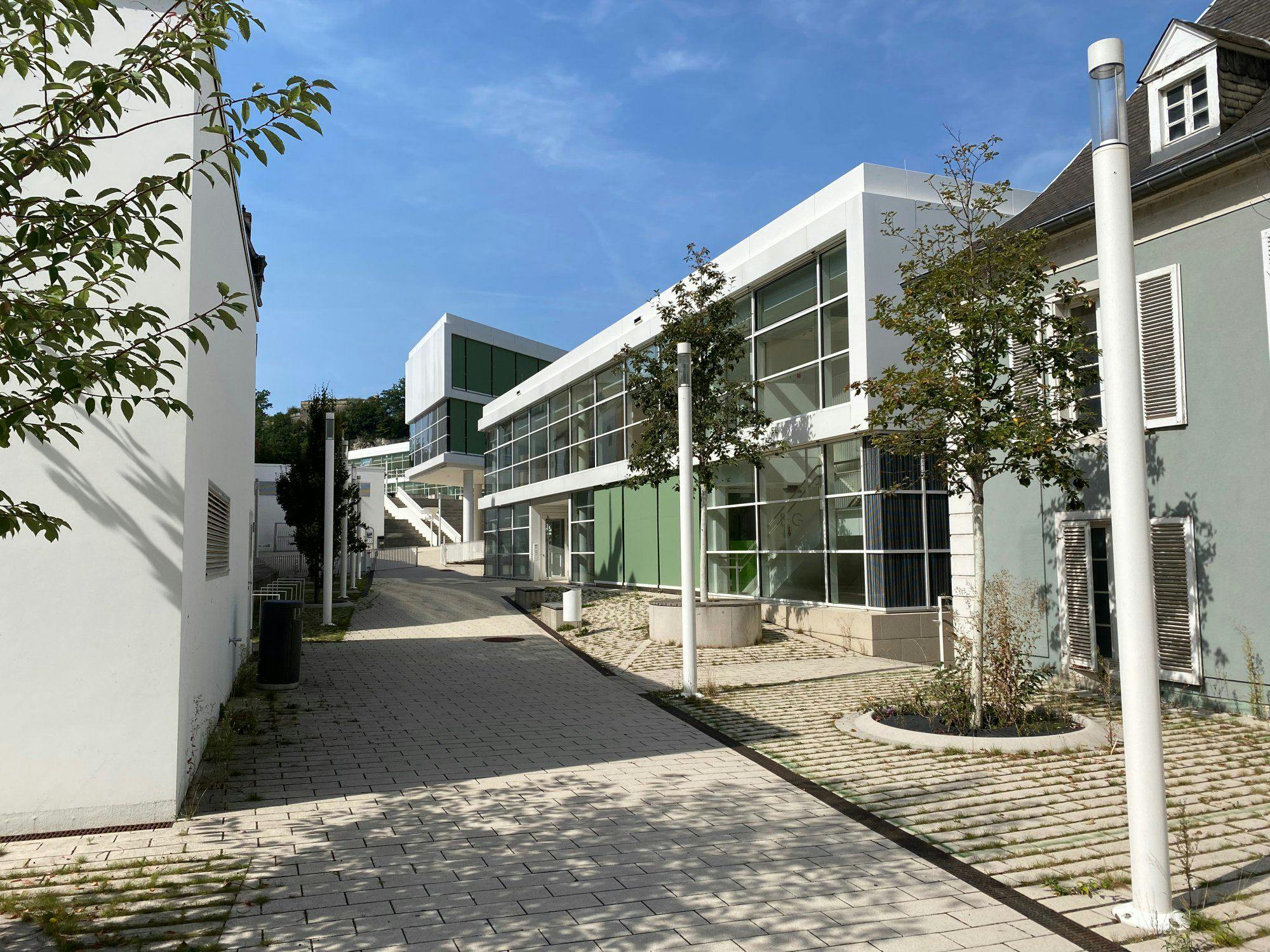
Clausen: a balanced duality in the heart of the capital of Luxembourg
This article delves into Clausen, covering its history, population dynamics, and living conditions. We explore its transport, infrastructure including schools, cultural centers, and healthcare, and its green parks.
Clausen, nestled within the fortified lower city of Luxembourg, stands as one of the oldest and smallest among the 24 districts that form the capital.
General characteristics of Clausen
Nestled to the east of Pfaffenthal and comfortably tucked southwest of Kirchberg, this historically rich quarter has proudly held UNESCO World Heritage status since 1994, a testament to its undeniable charm and timeless beauty. It's a place where history's touch is palpable in every cobblestone and ancient facade. Clausen, renowned for its dynamic nightlife and effervescent atmospheres, stands out as a strategic epicenter for those in pursuit of memorable adventures and vibrant evenings. This area, a harmonious blend of historical significance and contemporary zest, offers an unparalleled experience for both history enthusiasts and nightlife seekers.
Population of Clausen
The district is a home to a population of a mere thousand individuals, making Clausen the third least populous district in Luxembourg City. It hosts
Clausen distinguishes itself with a significant international presence, as a remarkable 74.27% of its residents are from foreign countries. This high proportion of foreign-born residents ranks Clausen fourth among neighborhoods in Luxembourg City with the largest international populations, following Hollerich, Neudorf, and the Gare district.
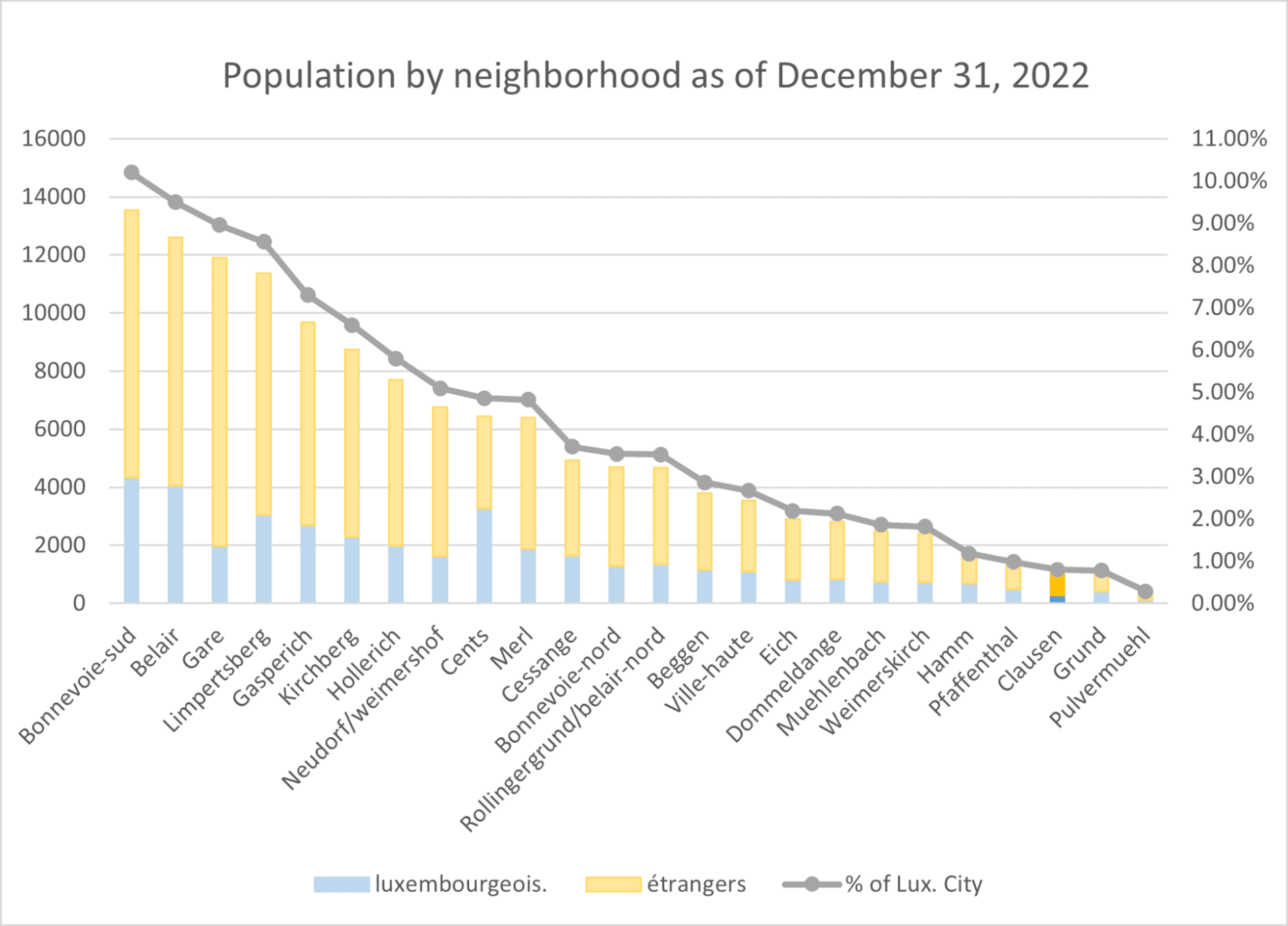
This diverse demographic composition adds a unique cultural richness and international flair to Clausen, contributing to its distinct character within the capital.
Transport accessibility
Clausen, strategically positioned near the city center, boasts excellent transport accessibility, ensuring seamless connections for residents and visitors alike. Whether by car, bus, bicycle or on foot, the neighborhood provides diverse options for commuting.
Here's a breakdown of the various transportation modes:




Renting and buying real estate
The real estate market in Clausen, Luxembourg City, demonstrates competitive dynamics. As of the latest data, the average purchase price in this district is reported at 10,463 euros per square meter. This figure positions it slightly below the overall city average, which stands at 12,243 euros per square meter.
For buying the average price is
For renting the average price is
On the rental front, Clausen exhibits a marginally higher rate compared to the city's average, with rental prices averaging 30.93 euros per square meter, as opposed to the capital's average of 30.58 euros per square meter.
Applications, search, and profound advice in our guide to renting

Infrastructure of the neighborhood
What makes Clausen particularly attractive is its dual character. During the day, it's a tranquil residential area with beautiful green spaces and proximity to significant landmarks like the Alzette River and Parc des Trois Glands in Kirchberg. This peacefulness is balanced by a bustling nightlife. As evening falls, Clausen transforms into a lively district, renowned for its variety of bars and restaurants. This makes it a popular destination for both residents and visitors seeking a vibrant social scene.
Living in Clausen: advantages and disadvantages
Clausen's distinctive charm lies in its rich tapestry of infrastructure, seamlessly blending historical landmarks with modern amenities.
While the neighborhood boasts cultural gems like the birthplace of Robert Schuman and the remnants of Mansfeld Castle, it grapples with limitations in education facilities, primarily offering a fundamental school.
One of the drawbacks of the area is its limited supermarkets and shopping options, as it lacks a significant number of stores. This scarcity compels residents to venture into the city center to fulfill their more comprehensive shopping needs.
On the other hand, Clausen distinguishes itself as a vibrant nocturnal destination, especially in the Rives de Clausen area. This locality is celebrated for its dynamic nightlife scene, boasting an extensive array of bars, nightclubs, and restaurants that cater to a diverse array of tastes and preferences.
What is there in this quartier of Luxembourg City?
Clausen's distinctive charm lies in its rich tapestry of infrastructure, seamlessly blending historical landmarks with modern amenities. While the neighborhood boasts cultural gems like the birthplace of Robert Schuman and the remnants of Mansfeld Castle, it grapples with limitations in education facilities, primarily offering a fundamental school.
Clausen is home to Clausen Central School, which offers primary education within the neighborhood, and for young children, there is the Crèche de Luxembourg nursery school. However, for secondary education and additional educational facilities, residents must venture to neighboring districts.
While the neighborhood doesn't host universities, its connectivity to the city center provides easy accsess to the educational facilities outside the neighborhood.
Clausen Central School
Crèche de Luxembourg in Clausen
While Clausen may not be renowned for its vibrant cultural scene, it houses historically significant sites worthy of exploration. The birthplace of Robert Schuman, acquired by the state in 1985, now hosts the Centre d’Études et de Recherches Européennes Robert Schuman (CERE). This institution is dedicated to scientific research on the history of the European integration process and Luxembourg's role therein.
Clausen hosts the Vestiges du Château Mansfeld, although currently inaccessible due to ongoing archaeological excavations since 2003. The remnants of Mansfeld Castle provide a glimpse into the area's historical richness. The neighborhood embraces the Sainte-Cunégonde church, the parish church of Clausen. Originating from the 19th century with medieval roots, this church has undergone multiple reconstructions throughout its history.
- Robert Schuman's birthplace: 4 Rue Jules Wilhelm, Clausen Luxembourg, maison-schuman.uni.lu
- Château La Fontaine : 27 Rue Malakoff, Clausen Luxembourg
- Sainte-Cunégonde Church: Pl. Sainte-Cunégonde, Clausen Luxembourg
Learn more about Luxembourg's culture and traditions in our special guide.
While Clausen doesn't have its own medical facilities like hospitals or clinics, residents can conveniently access a range of healthcare options in nearby areas. Clinique Zitha, a key part of the Hôpitaux Robert Schuman network, is located just about 10 minutes away by car, or 20 minutes if you're using public transportation, in the Gare district to the south.
- Address: 20-30 rue d'Anvers, Luxembourg
- Phone: (+352) 2 88 81
- Website: hopitauxschuman.lu
In Clausen, several children's play areas within the Clausen Central School facilities are open to the public outside school hours. Towards the northern part of the neighborhood lies Mansfeld Park, offering a green expanse for nature appreciation and serene relaxation. Additionally, public green and recreational spaces like Parc des Trois Glands, though not directly within Clausen, are conveniently close to the neighboring Kirchberg district, providing residents with varied outdoor options for leisure and enjoyment.
- Playgrounds at Clausen Central School: 39 Montée de Clausen, Luxembourg
- Mansfeld Park: All. Pierre de Mansfeld, Clausen Luxembourg
If you're an avid walker or hiker, there are many scenic routes to explore in the country, allowing you to immerse yourself further in the natural beauty and history of this charming Luxembourg neighborhood. Into hiking? Take a look at our dedicated article.
While Clausen itself lacks sports facilities, residents have convenient access to the nearby Grund district, home to the National Institute of Sports (INS). Under the authority of the Minister of Sports, it offers a plethora of facilities, including multi-sport courts, gyms, football and volleyball fields, and athletics tracks, a comprehensive resource for sports enthusiasts in the vicinity.
- Phone: (+352) 24 78 34 00
- Website: ins.lu
Clausen boasts a diverse range of restaurants and bars, particularly in the vibrant area known as the Rives de Clausen, where former Mousel brewery sites have been transformed to delight night owls.
For a broader retail experience, residents often head to the nearby city center. Similarly, supermarkets are absent in Clausen, necessitating a trip to the city center for grocery shopping and provisions.
Historical overview
Clausen, an integral part of Luxembourg's historical tapestry, has been a settlement since the Middle Ages. Crowned by the Altmünster Plateau overlooking the Alzette River, it once hosted the 11th-century Benedictine Abbey of Munster, from which the district derives its name ('claustra,' meaning enclosure).
Long story short
Monks and beer
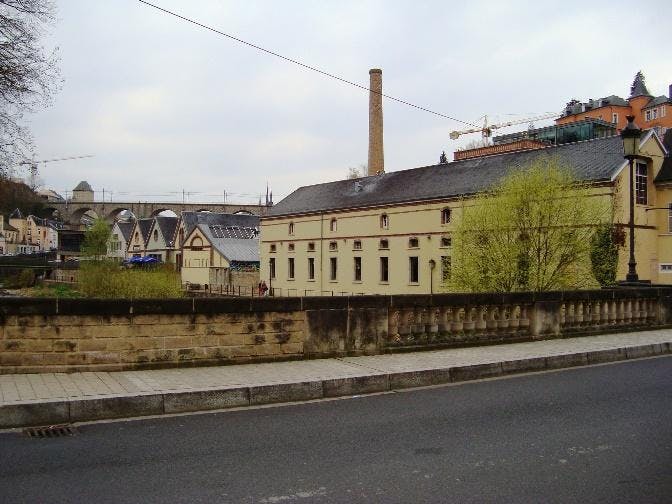
Clausen, once graced by a majestic castle and ecclesiastical importance, evolved through history, leaving an indelible mark as a hub of brewing excellence that endured, echoing the resilience and adaptability inherent in this quaint Luxembourgish enclave.
Frequently Asked Questions (FAQ)
What makes Clausen a unique neighborhood in Luxembourg?
Clausen's uniqueness lies in its historical allure, marked by UNESCO recognition and landmarks like Robert Schuman's birthplace. The neighborhood seamlessly blends rich cultural heritage with a vibrant nightlife scene, notably in the 'Rives de Clausen' area, making it a distinctive and sought-after enclave within Luxembourg.
What are the pros and cons of living in Clausen?
Pros encompass the historic charm, bustling nightlife, and proximity to the city center. However, the neighborhood grapples with limited education facilities and shopping options, prompting residents to explore neighboring districts for comprehensive amenities.
What transportation options are available in Clausen?
Clausen offers diverse transportation options, including easy access by car to the city center and nearby districts. Additionally, well-connected bus routes, bicycle-friendly routes, and pedestrian-friendly pathways provide efficient connectivity.
Source: fr.wikipedia.org, www.vdl.lu, www.justarrived.lu, www.vdl.lu, www.immotop.lu
We took photos from these sources: Ville de Luxembourg, Immotop.lu, Wikipedia
